#marianne hauge
Explore tagged Tumblr posts
Text
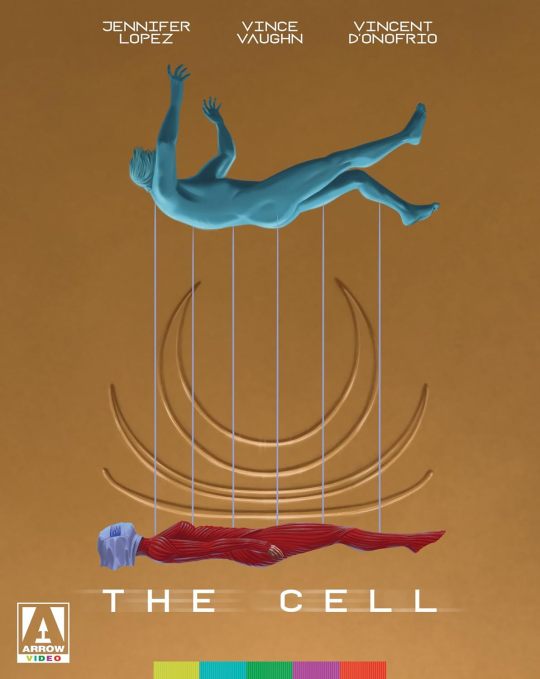
The Cell will be released on 4K Ultra HD and Blu-ray on January 21 via Arrow Video. Peter Savieri designed the new cover art for the 2000 psychological horror film; the original poster is on the reverse side.
Tarsem Singh (Immortals, The Fall) directs from a script by Mark Protosevich (I Am Legend, Thor). Jennifer Lopez, Vince Vaughn, and Vincent D'Onofrio star with Marianne Jean-Baptiste, Jake Weber, and Dylan Baker.
The theatrical and director's cuts have been newly restored in 4K, approved by Singh, with Dolby Vision. An alternate version of the theatrical cut created by director of photography Paul Laufer is also included.
Special features and limited edition contents are listed below, where you can also see more of the packaging.

Disc 1 - 4K UHD:
Theatrical cut (107 min)
Director's cut (109 min)
Audio commentary with film scholars Josh Nelson & Alexandra Heller-Nicholas (new)
Audio commentary with screenwriter Mark Protosevich & film critic Kay Lynch (new)
Audio commentary with director Tarsem Singh
Audio commentary with director of photography Paul Laufer, production designer Tom Foden, makeup supervisor Michèle Burke, costume designer April Napier, visual effects supervisor Kevin Tod Haug, and composer Howard Shore
Projection of the Mind’s Eye - Feature-length interview with director Tarsem Singh (new)
Between Two Worlds - Interview with director of photography Paul Laufer (new)
Disc 2 - Blu-ray:
Alternate version of theatrical cut - presented in 1.78:1 aspect ratio with alternate grading from a 2K master created by director of photography Paul Laufer (new)
Interview with director of photography Paul Laufer about the alternate version (new)
Art is Where You Find It - Visual essay by film scholar Alexandra Heller-Nicholas (new)
The Costuming Auteur - Visual essay by film critic Abby Bender (new)
Style as Substance: Reflections on Tarsem
8 deleted/extended scenes with optional commentary by Tarsem Singh
6 multi-angle visual effects vignettes
Theatrical trailers
Image gallery
Also included:
Collector’s book with new writing on the film by critics Heather Drain, Marc Edward Heuck, Josh Hurtado, and Virat Nehru
When serial murderer Carl Stargher (Vincent D’Onofrio) falls into a coma with his latest victim still trapped in an unknown location and waiting to die, the FBI turn to psychologist Catherine Deane (Jennifer Lopez) for help. Using an experimental technology she enters the dark dreamscape of Stargher’s mind, attempting to learn his secrets before it’s too late. But his unconscious is a twisted nightmare, a labyrinth that threatens to trap her inside his terrifying world forever. To save a life, she’ll have to risk her own.
Pre-order The Cell.
#the cell#Jennifer Lopez#Vince Vaughn#Vincent D'Onofrio#marianne jean baptiste#jake weber#dylan baker#arrow video#dvd#gift#Peter Savieri#tarsem singh#horror#00s horror#2000s horror
22 notes
·
View notes
Photo

Sonja Wigert as Marianne Hauge and Anders Henrikson as Pastor Bengt Ahlman in Hennes lilla majestät (Her little Majesty) 1939. Directed by Schamyl Bauman.
This is a charming Swedish romantic comedy of ‘opposites attract’ featuring the distinguished stage & screen actor/director Anders Henrikson as the Swedish country parson meeting the spoiled Norwegian rich girl played by the enchanting Sonja Wigert. Love ensues, of course!
Anders Henrikson on Pinterest
#anders henrikson#sonja wigert#bengt ahlman#marianne hauge#hennes lilla majestät#her little majesty#schamyl bauman#swedish films#romantic comedy
4 notes
·
View notes
Text
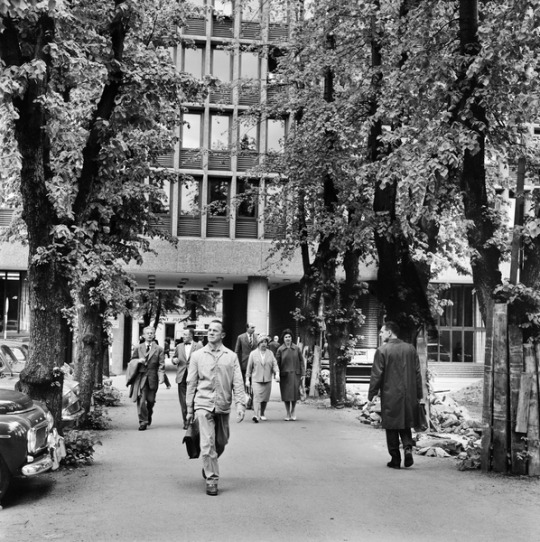
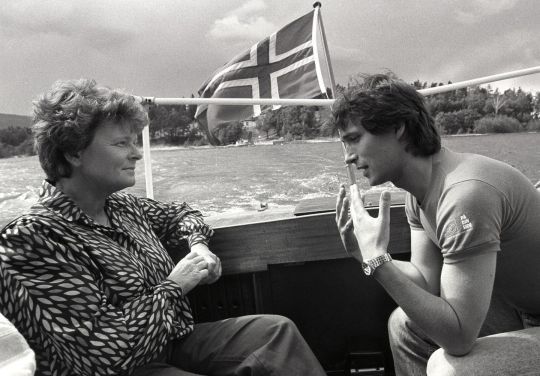
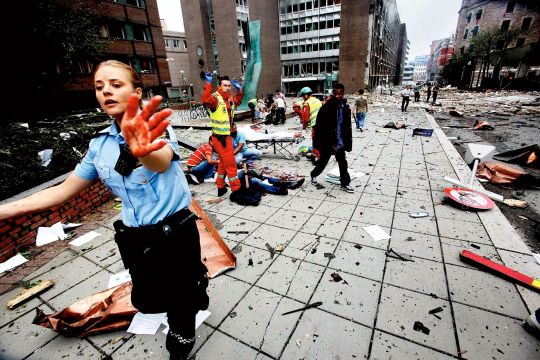
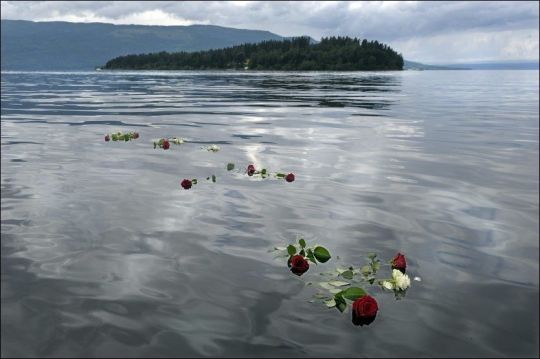
Government building at the end of working hours, 1962
Gro Harlem Brundtland and AUF leader Jens Stoltenberg on Utøya, 1987
Utøya and Oslo July 2011
On this day it is 10 years since the 22 july attack. On July 22, 2011, a far-right terrorist detonated a car bomb in the government quarter in Oslo, before driving to the Labor Party's summer camp for young people on the island of Utøya. 8 people died in the bombing, the massacre on Utøya lasted 66 minutes and 69 people, mainly teenagers, were killed.
The perpetrator was motivated especially by the racist Eurabia conspiracy theory and hatred for the Labor Party, Muslims, immigrants, feminism and social democratic Norway in general.
While the terrorist was motivated by hate, the civilian efforts to help the victims was impressive. In the government quarter people helped each other. On Utøya, as the kids tried to hide or swim off the island, despite the fact that the perpetrator was shooting, civilians in boats went out to pick them up.
Today we take a moment to remember the victims of this attack and all victims of hate crimes and political violence, rest in peace:
Mona Abdinur, Ismail Haji Ahmed, Thomas Margido Antonsen, Pamela Ardam, Modupe Ellen Awoyemi, Lene Maria Bergum, Kevin Daae Berland, Trond Berntsen, Sverre Flåte Bjørkavåg, Torjus Jakobsen Blattmann, Carina Borgund, Johannes Buø, Monica Elisabeth Bøsei, Åsta Sofie Helland Dahl, Sondre Furseth Dale, Monica Iselin Didriksen, Gizem Dogan, Andreas Edvardsen, Tore Eikeland, Bendik Rosnæs Ellingsen, Aleksander Aas Eriksen, Andrine Bakkene Espeland, Hanne A. Balch Fjalestad, Silje Merete Fjellbu, Hanne Kristine Fridtun, Andreas Dalby Grønnesby, Snorre Haller, Rune Havdal, Ingrid Berg Heggelund, Karin Elena Holst, Eivind Hovden, Guro Vartdal Håvoll, Jamil Rafal Mohamad Jamil, Steinar Jessen, Maria Maagerø Johannesen, Ronja Søttar Johansen, Espen Jørgensen, Sondre Kjøren, Margrethe Bøyum Kløven, Syvert Knudsen, Anders Kristiansen, Elisabeth Trønnes Lie, Gunnar Linaker, Tamta Lipartelliani, Eva Kathinka Lütken, Even Flugstad Malmedal, Tarald Kuven Mjelde, Ruth Benedichte Vatndal Nilsen, Emil Okkenhaug, Diderik Aamodt Olsen, Henrik André Pedersen, Rolf Christopher Johansen Perreau, Karar Mustafa Qasim, Bano Abobakar Rashid, Henrik Rasmussen, Ida Beathe Rogne, Synne Røyneland, Marianne Sandvik, Fredrik Lund Schjetne, Lejla Selaci, Birgitte Smetbak, Isabel Victoria Green Sogn, Silje Stamneshagen, Victoria Stenberg, Tina Sukuvara, Sharidyn Svebakk-Bøhn, Simon Sæbø, Håvard Vederhus, Håkon Ødegaard, Hanna M. Orvik Endresen, Kai Hauge, Ida Marie Hill, Anne Lise Holter, Tove Åshill Knutsen, Jon Vegard Lervåg, Hanne Ekroll, Kjersti Berg Sand
#trigger warning#this is not really vintage#but this is so important#oslo#utøya#terrorism#22 juli#22 july
232 notes
·
View notes
Text
Anonymous asked: I love your book reviews under the banner ‘Treat Your S(h)elf’ - nice play on words. You have such a wide and cultured range of interests that I really learn something new. Do you read poetry? What are your favourite poets? What are you currently reading?
I love reading poetry because as the poet Robert Frost put it succinctly, “Poetry is when emotion has found its thought, and thought has found words”.
Poets are before anything else in the words of W.H. Auden, “a person who is madly in love with language” and language is the bedrock of any culture and society and ultimately civilisation. When you truly think about it, poetry is meaningless when it has been left to gather dust on a piece of paper. It is simply a memory of an idea conjured up by a writer with something to say. Poetry must be read, it needs to be experienced because it keeps these ideas burning. These meaningful concepts about the nature of life, death and everything. Every time a person reads a poem, a new bright spark emerges in that person’s head. A new way of thinking, a new way of understanding. That is exactly why poetry must be read because it is the essence of our language.
The reasons I personally read poetry, you ask? Here are some reasons I can think of from the top of my head others are too personal to reveal:
I read poetry because poetry is thoughts that breathe and words that burn. And I read poetry because it is what happens when my mind stops working , and for a moment, all I do is feel. This is good therapy for me as I’m not the most openly emotional or prone to displays of emotion in public. It’s just not how I was built. Poetry helps one to feel. So some poems remain so close to my heart.
I remember when I was about to go on my first tour to Afghanistan I was quite calm and cold blooded because that was and is my nature. My father - who served with distinction in uniform like his father and grand father, and great-grandfather before him - was always proud and supportive of me being the black sheep of the family as the only girl in our family going through Sandhurst and now I was off to the last embers of a war in Afghanistan that everyone had forgotten about. He was concerned - like the rest of my family - like any loving parent about what might happen. But he didn’t question my professionalism or my abilities so he didn’t give me that lecture instead he thrust in my hand both classical literature (Thucydides and Homer in particular) and the works of selected poets. He told me poetry will save your life. He wasn’t anxious about my physical safety he was thinking about my soul. For what happens during war and what comes after if and when I come home. Long story short: poetry saved my life.
By nature I am restless to an incredible annoying degree. I fear being bored. I find it hard to sit and be idle. Poetry is my balm for boredom.
I am incredibly busy and I work punishing long hours. Time is premium. People make demands on me and my time. Poems are like super-condensed stories, and are therefore usually short enough to be read over your morning tea/coffee. In this fast-paced world we live in, sometimes poems are a better alternative to reading fully-fledged novels, or even short stories and poetry gives you the chance to continue to expand your literary horizons even during the busiest times in your life. And becoming more widely read is an incredible way to ensure you are continuously growing, and learning, while becoming a more cultured individual at the same time. There is no greater agony than bearing an untold story inside you and when I read some of those beautiful pieces of poetry by my favourite poets it's like the paper is filled with the breathings of my heart.
The most frightening thing is people I know stop growing culturally after they leave university and get on with the business of life i.e. careers, marriage and family. Once on that treadmill they don’t or can’t stop. They are unable to step off and take a breath. Poetry gives you a breather and helps you to re-centre your priorities. The more you read poetry, the greater your quest for knowledge awakens. Doorways will open inside your mind and unlock your hidden potential for a greater understanding of life. Anyone who reads poetry often can connect with this conclusive sentence formation that defines your very questionable outlook on life.
I also believe poetry allows us to be less rigid in our thinking with an authentic, personal touch. When I read poems, nothing is often straightforward. Every poem has a meaning hiding under it, but it is blocked by a myriad of literary devices such as metaphors and symbolism. It is important to be able to think more figuratively because it allows you to understand ideas and perspectives in a more abstract and possibly more meaningful way. Sometimes I find that having a single page of beautifully crafted words can be enough of a distraction to spark a sudden creative leap in my brain. There have been many times where I've miraculously thought of ways to solve a problem (big or small) purely because reading poetry forced me to think differently from the usual day-to-day thoughts required for general life.
Poetry is best read when you’re hidden from the outside world, in a quiet little spot, somewhere away from all the hustle and bustle. It is increasingly hard to do just that. I have so many demands on my time and limited space but I force myself to carve out the time and space to do this - one must try. As a rule I switch off all social media (not that I have many to begin with but most definitely my phone). The best time for me to carve out time is when I’m traveling as I’m able to shut out everything around me. Usually when I’m waiting for a flight in the business class departure lounge it’s quiet and not too many people to distract me and there is usually a delay to the flight. When I check into a hotel I feel a disconnect to the world around me. I feel like an alien. Poetry helps me to connect again. Poetry calms and focuses the mind. With poetry I can almost reset my day because it’s not just a time zone I have to get used to but also a state of mind - and especially if I find myself being unproductive too!
I often escape Paris and go into the countryside. I love going on walks, hikes, mountaineering, and other outdoor pursuits. It allows me the space and time to read poetry and reflect in peace. And of course I snatch time before I go to sleep to read a poem if I am not too tired.
The point is that I need the head space to absorb the poem and take some time to work out the meaning of the full entity. I try not swallow a whole book in one sitting, instead I read a few poems and leave the book until the next day or a few days depending on my schedule. Sometimes, you can read a poem again and you will find other meanings or pick up on information that you couldn’t see before. That’s poetry, you create the film, journey or picture inside your mind from reading the words on the page.
As for my favourite poets this is of course is a very personal choice. I didn’t read English at university but rather my academic interests were Classics and History, so I profess a very paltry poetic palate. Still, I’m grateful to those friends more versed than I to point me to other poets. So I do my best to keep an open mind and try and read poetry recommended by others or some thing that captures my eye when I browse through book stores or read it as a passing reference in a book I am reading.
Different poets and poems are discovered at one stage of life and where I happened to live in the world and only take on another meaning when re-read them at another stage. So I tend to re-visit poets I used to read as a teen and then see how it resonates now.
The majority of my poetic readings are in my native English and Norwegian languages but because I have varying degrees of fluency in other languages (because I grew up there for instance) I love widening my poetic palate. One of my regrets is not knowing Japanese and Chinese to a sufficient degree to really read poetry in those languages even if I have basic fluency in literature and everyday conversation. So reading Ezra Pound is one way in English to appreciate these Eastern poetic influences. I’m also ashamed to admit that I only know a woeful smattering of words in Scotiish Gaelic - my Anglo-Scots father knows it fairly well but even he struggles - and really I must find time in the future to learn more of it because it’s such a fascinating language (not least because it’s also dying out and that is tragic).
So below is an eclectic and random list from the top of my head and in no real order of preference:
• Homer (Greek) • Sappho (Greek) • Rumi (Farsi) • Mirza Ghalib (Urdu and Farsi) • John Milton • John Donne • William Shakespeare • Dante (Italian) • Robert Burns • William Wordsworth • Samuel Taylor Coleridge • William Blake • John Keats • Emily Dickinson • Christina Rosetti • Gerald Manley Hopkins • Walt Whitman • Oscar Wilde • W.B. Yeats • Rudyard Kipling • Wilfred Owen • Alfred Tennyson • Rainer Maria Rilke (German) • Cavafy (Greek) • T.S. Eliot • Hilda Doolittle • Marianne Moore • Sylvia Plath • W. H. Auden • Olaf H. Hauge (Norwegian) • Bjørnstjerne Bjørnson (Norwegian) • Aslaug Vaa (Norwegian) • Rolf Jacobsen (Norwegian) • Sarojini Naidu (Hindi) • Gulzar (Hindi)
Living in Paris I tend to read more French poetry these days. By osmosis it helps me appreciate the French language and French culture even more.
• Charles Baudelaire. • Paul Verlaine • Jacques Prévert • Arthur Rimbaud • Alphonse de Lamartine • Alfred de Musset • Paul Valéry • Paul Eluard • Jean Genet • Françoise Villon
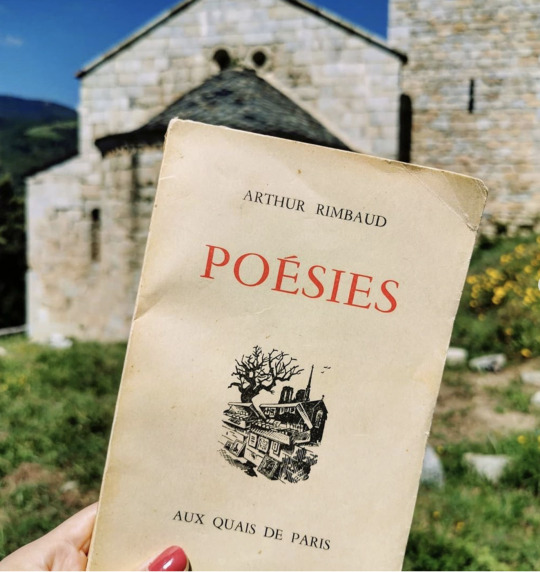
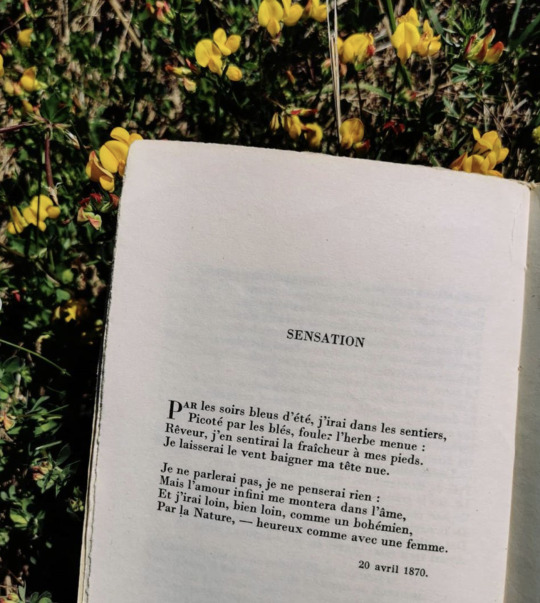
Poetry is an art that combines the essence of life through the fabrication of reality. Poets challenge and nourish me with their wisdom, philosophy, love and journeys beyond what used to be the limits of my own creative imagination. They push my boundaries ever so more. In doing so they grow my mind for understanding, my heart for empathy, and my soul for wisdom. It would hard to disagree with Robert Frost who sums up what poetry means to me, “a poem begins in delight, and ends in Wisdom��.
Thanks for your question
45 notes
·
View notes
Photo

Sonja Wigert as Marianne Hauge and Anders Henrikson as Pastor Bengt Ahlman in Hennes lilla majestät (Her little Majesty) 1939. Directed by Schamyl Bauman.
This is a charming Swedish romantic comedy of ‘opposites attract’ featuring the distinguished stage & screen actor/director Anders Henrikson as the Swedish country parson meeting the spoiled Norwegian rich girl played by the enchanting Sonja Wigert. Love ensues, of course!
Anders Henrikson on Pinterest
#anders henrikson#sonja wigert#hennes lilla majestät#her little majesty#schamyl bauman#swedish films
3 notes
·
View notes
Text
Norwegian / old norse names and places
Every now and then I come across a book, movie, TV-series, fanfic, game or whatever, that mention a fictional "Norwegian" or "norse" place or person, and it just sounds so wrong it makes me either cringe or ROFL. Really. I still haven't recovered from the 1995 X-files episode, "Død Kalm", which took us to the port of "Tildeskan" where we met "Henry Trondheim", "Halverson" and "Olafsson". Hopefully this list will keep others from being that “creative” with names. :)
Common names for places, towns and villages in Norway
These names are very generic and suitable for a place, village or town anywhere (and pretty much any time) in Norway. Mix and match prefixes with suffixes for diversity. Bonus: All of these can also be used as surnames. Name (meaning) - usage
Nes (headland, cape, ness) - Standalone Bø (fenced-in field on a farm) - Standalone Fjell (mountain) - Standalone or prefix/suffix: Fjell- / -fjell Haug (small hill / large mound) - Standalone or prefix/suffix: Haug- / -haug Vik, Viken, Vika (inlet, the inlet, the inlet) - Standalone or prefix/suffix: Vik- / -viken / -vika Ås, Åsen (hill, the hill (larger than "Bakken")) - Standalone or prefix/suffix: Dal, Dalen (valley, the valley) - Standalone or prefix/suffix: Berg (small mountain) - Standalone or prefix/suffix: Berg(s)- / -berg Sand (sand) - Standalone or prefix/suffix: Sand- / -sand Strand (beach) - Standalone or prefix/suffix: Strand- / -strand Li (hill) - Standalone or prefix/suffix: Li- / -li Gran (spruce) - Standalone or prefix: Gran- Bratt (steep) - prefix only: Bratt- Myr (bog, mire) - prefix only: Myr- Neset, Nesset (the headland, the cape, the ness) - Standalone or suffix: -neset / -nesset Odden (foreland, headland) - Standalone or suffix: -odden Våg (cove, bay) - Standalone or suffix: -våg Lund (grove) - Standalone or suffix: -lund Sund (sound, strait) - Standalone or suffix: -sund Skog (forest) prefix/suffix: Skog- / -skog Øy (island) prefix/suffix: Øy- / -øy øya (the island) - suffix only: -øya bakken (the hill) - suffix only: -bakken gard / gård / gården (farm / farm / the farm) - suffix only: -gard / -gård / -gården elv, -elva (river, the river) suffix only: -elv / -elva stad (old word for town/place) suffix only: -stad vannet (the lake) - suffix only: -vannet
Common words that can be used as prefix to any of the suffixes above Svart- (black) Lille- (little/small) Sol- (sun) Brei-/Bred- (wide) Stor- (big) Lang- (long)
Common Norwegian surnames (contemporary)
Heredatory surnames didn't become mandatory in Norway until 1923. Many took the name from the farm or place they lived, or just changed their primary patronyms into hereditary patronyms. Example: Helgessønn/Helgesdatter (son of Helge / daughter of Helge) became Helgesen.
Alm Andersen Anderssen Antonsen Aspelund Bakke Bakken Bang Berg Bjerkan Bråthen Christensen Corneliussen Dahl Dahlberg Danielsen Dyrnes Dørum Eide Ellingsen Erdal Eriksen Falch Fredriksen Foss Fure Fylling Gabrielsen Gran Grønning Halvorsen Hansen Hanssen Hay Hoff Holm Holt Husby Isaksen Iversen Jacobsen Jensen Jenssen Johansen Karlsen Klausen Konradsen Kristensen Kristiansen Larsen Larssen Lie Lien Lund Løvold Magnussen Meyer Mikalsen Mo Moen Myhre Myklebust Mørk Ness Nilsen Olavsen Olsen Paulsen Pettersen Prestegård Rasmussen Riise Rogstad Ruud Simonsen Solbakken Solli Stokke Strøm Sund Svendsen Thorvaldsen Torp Thune Tønnesen Ueland Ulven Urdal Vik Vinje Wahl Wik Wilhelmsen Zakariassen Ødegård Årseth Årvik Ås, Aas Åsen, Aasen
Common Norwegian names -- 1980 - present
Men
Anders André Andreas Are Arne Atle Bjørn Cato Chris Christian, Kristian Christoffer, Kristoffer Daniel David Dennis Elias Emil Espen Erik, Eric Eirik Fredrik Filip Geir Harald Helge Hans Henning Håkon, Haakon Håvard Isak Jan Joachim Johan Johannes John, Jon Johnny Jonas Jonathan Kim Kristian, Christian Kristoffer, Christoffer Lars Lucas, Lukas Mads, Mats Magnus Martin Michael, Mikael Morten Niklas Nils Odin Ole Ove Paul Per Peter, Petter Preben Pål Richard, Rikard Roger Sebastian Simen Simon Sindre Sondre Stian Terje Thomas Thor, Tor Thore, Tore Vegard Werner William Øystein Åge Åsmund
Women
Andrea Ane, Anne Anette, Annette Annika, Anniken Astrid Bente Camilla Carina Cathrine Celine Charlotte Christin, Kristin Christina, Kristina Christine, Kristine Elin, Eline Elise Elisabeth Emilie Eva Frida Grete, Grethe Hanne Hege Heidi Helene Hilde Ida Ine Ingrid Ingvill, Ingvild Isabel, Isabell, Isabelle Iselin Jannicke Janine Jeanette Jennie, Jenny Julia, Julie Karoline (Kine) Katrin, Katrine Kristin, Christin Lea, Leah Lena, Lene Linda Line Linn Linnea Lise, Lisa Liv, Live Mai, May Maja Malin Margrete, Margrethe Mari, Maria, Marie Mariann, Marianne Marte, Marthe Mette Monica Nina Nora Oda Pia Ragnhild Randi Rikke Sara, Sarah Silje Siv Stina, Stine Susann, Susanne Tanja Tina, Tine Tiril Tone Trine Vilde Vera Veronica Wenche Åse Åshild
Common Norwegian names - 1800 - 1980
Men Aksel Albert Anders Andreas Anker Ansgar Arne Arnt Arve Asle Atle Birger Bård Charles Edmund Edvard Egon Erling Even Fred Fredrik Frode Geir Georg Gunnar Gunvald Gustav Harald Helge Hilmar Håkon, Haakon Ivar Ingvar Jens Jesper Jørgen Joakim Karl Karsten, Karstein Kjell Klaus Kolbein Kolbjørn Kristian Kåre Lars Lavrans Leif Lossius Ludvig Magne Magnus Nikolai Nils Odd Oddvar Odin Ola Olai Olaf Olav Ole Omar Oscar, Oskar Peder Per Petter Philip, Phillip Pål Ragnar Rikard Roald Roar (also Hroar) Rolf Rune Sigurd Sigvard, Sigvart Simon Svein Sverre Tarjei Terje Toralf, Thoralf Torbjørn, Thorbjørn Torleif, Thorleif Torstein, Thorstein Torvald, Thorvald Trond Ulf Ulrik Valdemar Wilhelm Willy Åge
Women
Albertine Alice, Alise Alma Anita Anna Annbjørg Asbjørg Astrid Aud Bente Berit Birgit Birgitte Bjørg Bjørgun Bodil Borghild Dagny Dagrun Edel Ella Ellen Elsa Fredrikke Frida Gerd Gjertrud Gunhild Gyda Hanna, Hannah Helga Henny Herdis Hilda Hilde Hjørdis Ingeborg Inger Irene Johanna, Johanne Jorun, Jorunn Josefine Judith Kari Karin Kirsten Kitty Kjersti Laila Lilli, Lilly Lisa, Lise Liv Lovise Mathilde Margaret Marit Martha Molly Nanna Oddrun Oddveig Olga Ragna Ragnhild Rigmor Sara Signe Sissel Solbjørg Solveig Solvår Svanhild Sylvi Sølvi Tora Torhild, Toril, Torill Torun, Torunn Tove Valborg Ylva Åse Åshild
Names usage Double names, like Ragnhild Johanne or Ole Martin are common in Norway. Just keep them as two names and don't use "-", and you'll be safe, even if it ends up a tongue twister. Using only one of two given names is also common practice.
In Norway everyone is on a first name basis. Students call teachers and other kids' parents by their first name, workers call their boss by their first name, we call our Prime Minister by her first name (journalists will use her title when speaking to her though). Some senior citizens still use surnames and titles when speaking of or to people their own age.
There are some exceptions. For example, a doctor may be referred to as Dr. Lastname when we speak of them, but first name is used when speaking to them. A priest is "the priest" when speaking of him/her and their first name is used when spaking to them. In the millitary only surnames (and ranks) are used. If you meet Harald, the King of Norway, in an official setting you will refer to him as "Kongen" (the king). If you run into him at the gas station, or while hiking, he is "Harald".
If you don't know someone's name it is okay to use their title, or just say "you".
Names for pets (contemporary)
Dogs Laika (f) Bamse (m) (bear) Tinka (f) Loke/Loki (m) + characters from TV/film/books...
Cats Melis (m/f) (powdered sugar) Mango (m/f) (mango) Pus (f) (kitty) Mons (m) (tomcat) Nala (f) Pusur (m) (Garfield) Felix (m) Simba (m) + characters from TV/film/books...
Horses Pajazz (m) Mulan (f) Balder (m) - cold blood Kompis (m) (pal) Freya (f) - cold blood + characters from TV/film/books...
Rabbits Trampe (m) (Thumper) Trulte (f) + characters from TV/film/books...
Cows (yes, I am serious) Dagros Rosa Mira Luna Sara + characters from TV/film - Disney is popular, as are the Kardashians :)
Road and street names
Storgata (usually the main street) Kongens gate (the king's street) Dronningens gate (the queen's street) Jernbanegata (railroad street) Jernbaneveien (railroad road) Sjøgata (ocean street) Sjøveien, Sjøvegen (ocean road) Skolegata (school street) Torvgata (plaza street) Industrigata (industrial street) Industriveien (industrial road)
Prefixes Blåbær- (blueberry) Bringebær- (raspberry) Bjørke- (birch) Aspe- (asp) Kastanje- (chestnut) Solsikke- (sun flower) Blåklokke- (blue bell) Nype- (rosehip) Kirke- (church) Park- (park)
Suffixes -veien, -vegen (the road) -stien (the path)
Other Torvet (the plaza) - standalone or suffix: -torvet Havna (the port) - standalone or suffix: -havna Kaia (the port) - standalone or suffix: -kaia
Safe solution: use a first name or surname as prefix.
Old norse
Men’s names Agnarr (Agnar) Alfr (Alf) Ámundi (Amund) Ánarr Árngrimr (Arngrim) Askr (Ask) Auðun (Audun) Baldr (Balder) Beinir Bjørn Burr Borkr Dagfinnr (Dagfinn) Davið (David) Drengr Durinn Einarr (Einar) Eirikr (Eirik) Eivindr (Eivind) Erlingr (Erling) Fafnir Flóki Freyr (Frey) Fuldarr Galinn Gautarr (Gaute) Gegnir Geirr (Geir) Glóinn Grímarr (Grimar) Hafli Hakon Hallsteinn (Hallstein) Haraldr (Harald) Haukr (Hauk) Heðinn (Hedin, Hedinn) Helgi (Helge) Hrafn, Hrafni (Ravn) Hrafnkell (Ravnkjell) Iarl (Jarl) Ingolfr (Ingolf) Iuar (Ivar) Jafnhárr Jón Jóngeirr Kál Kiaran Klaus Knútr (Knut) Kolgrimr (Kolgrim) Kolr (Kol) Leifr (Leif) Loki Lyngvi Magnus Mikjáll (Mikal, Mikkel) Mór Morði Nesbjørn Nokkvi Oddr (Odd) Oddbjørn Oðin (Odin) Olafr (Olaf) Ormr (Orm) Otr Ouden Pálni Pedr Ragnarr (Ragnar) Ragnvaldr (Ragnvald) Randr (Rand) Róaldr (Roald) Rólfr (Rolf) Salvi Sigarr (Sigar) Sigbjørn Sigurðr (Sigurd) Skarpe Snorri (Snorre) Steinn (Stein) Sveinn (Svein) Teitr Þor (Thor/Tor) Þórbjørn (Thorbjørn/Torbjørn) Þorsteinn (Thorstein/Torstein) Tryggr (Trygg) Týr Ulfár Ulfheðinn (Ulvhedin) Ulfr (Ulf) Vakr Vani Veigr Viðarr (Vidar) Yngvarr (Yngvar) Æsi
Women's names
Anna Arnfriðr (Arnfrid) Ása Bera Bergdís (Bergdis) Biørg (Bjørg) Cecilia Cecilie Christina Dagný (Dagny) Dagrún (Dagrun) Dís Dísa Edda Elin Ellisif (Ellisiv) Freyja (Freya) Friða (Frida) Frigg Gerðr (Gerd) Gertrud Grima Gyða (Gyda) Hadda Hallbéra Hallkatla Herdís (Herdis) Hildigunnr (Hildegunn) Huld Hvít Ida Iðunn (Idun, Idunn) Ingríðr (Ingrid) Johanna Jórunn (Jorun, Jorunn) Juliana Katla Katrine Kristín (Kristin) Leikný (Leikny) Lif (Liv) Magnhildr (Magnhild) Mjøll Myrgiol Nál Nanna Nótt Oda Oddný (Oddny) Ólaug (Olaug) Rafnhildr (Ragnhild) Rán Rannveíg Ríkví (Rikvi, Rikke) Rúna (Runa) Roskva Sága (Saga) Sif (Siv) Sigriðr (Sigrid) Skaði (Skadi) Skuld Svana Sýn Solveig Tekla Tóra (Tora) Trana Ulfhildr (Ulfhild) Una Urðr (Urd) Valborg Vigdís (Viigdis) Vírún Yngvildr (Ingvill, Ingvild) Yrsa
Bynames Bynames, or nicknames, could be neutral, praising or condescending. Usually bynames described a person's
body, bodyparts, bodily features
age
kinship and descent
territorial origin
knowledge, belief, spirituality
clothing, armour
occupation, social position
nature
Examples: Eirik Blodøks (Eirik Blood-Axe), Gammel-Anna (old Anna), Halte-��sa (limping Ása). I suggest that you stick with English for bynames, or use (relatively) modern language if you are writing in Norwegian.
Surnames
Surnames weren't really a thing until 1923 when they became mandatory. Before 1923 patronyms (son/daughter of) were used, and the name of the farm you lived on was often added as an address.
For instance: Helgi Eiriksøn (Helgi, son of Eirik), who lived at the farm called Vollr (grass field), would be called Helgi Eiriksøn Vollr. If he moved to the farm called Haugr his name would change to Helgi Eiriksøn Haugr.
Patronyms
Men: Use father's first name and add -sen /-son /-sønn Women: Use father's first name and add -dotter / -dottir / -datter
Farm names
Farm names were usually relevant and derived from either the location, a nearby landmark, nature or from occupation. I suggest you stick with the modern forms for farm names.
Old Norse (meaning) - modern Bekkr (stream) - Bekk, Bekken Dalr (valley) - Dal, Dahl Horn (horn) - Horn Vollr (field) - Vold, Volden Lundr (grove) - Lund
The list of common names for places/villages/towns is still valid, although the spelling is modern. Just keep it simple and make "clever" combos based on meaning.
544 notes
·
View notes
Text
Neue Mitarbeiter bei der Gemeindeverwaltung Gomaringen
Finanzverwaltung Schon am 1. September 2017 hatte Frau Haug ihren ersten Arbeitstag bei der Gemeindeverwaltung. Sie ist insbesondere für die Veranlagung der Grund-, Gewerbe-, und Vergnügungssteuer zuständig. Frau Haug ist im Zimmer 2 des Rathauses unter der Telefonnummer (07072) 9155-32 und Email: [email protected] zu erreichen. Bauamt Ebenfalls am 1. September 2017 hat Frau Prawitt-Molitor…
View On WordPress
#Bauamt#Finanzverwaltung#Frau Haug#Frau Prawitt-Molitor#Herr Varetto#Herrn Walker#Marianne Jaesrich#Rathaus Gomaringen; Gemeindeverwaltung#Sabine Bayer#Schloss-Schule
0 notes